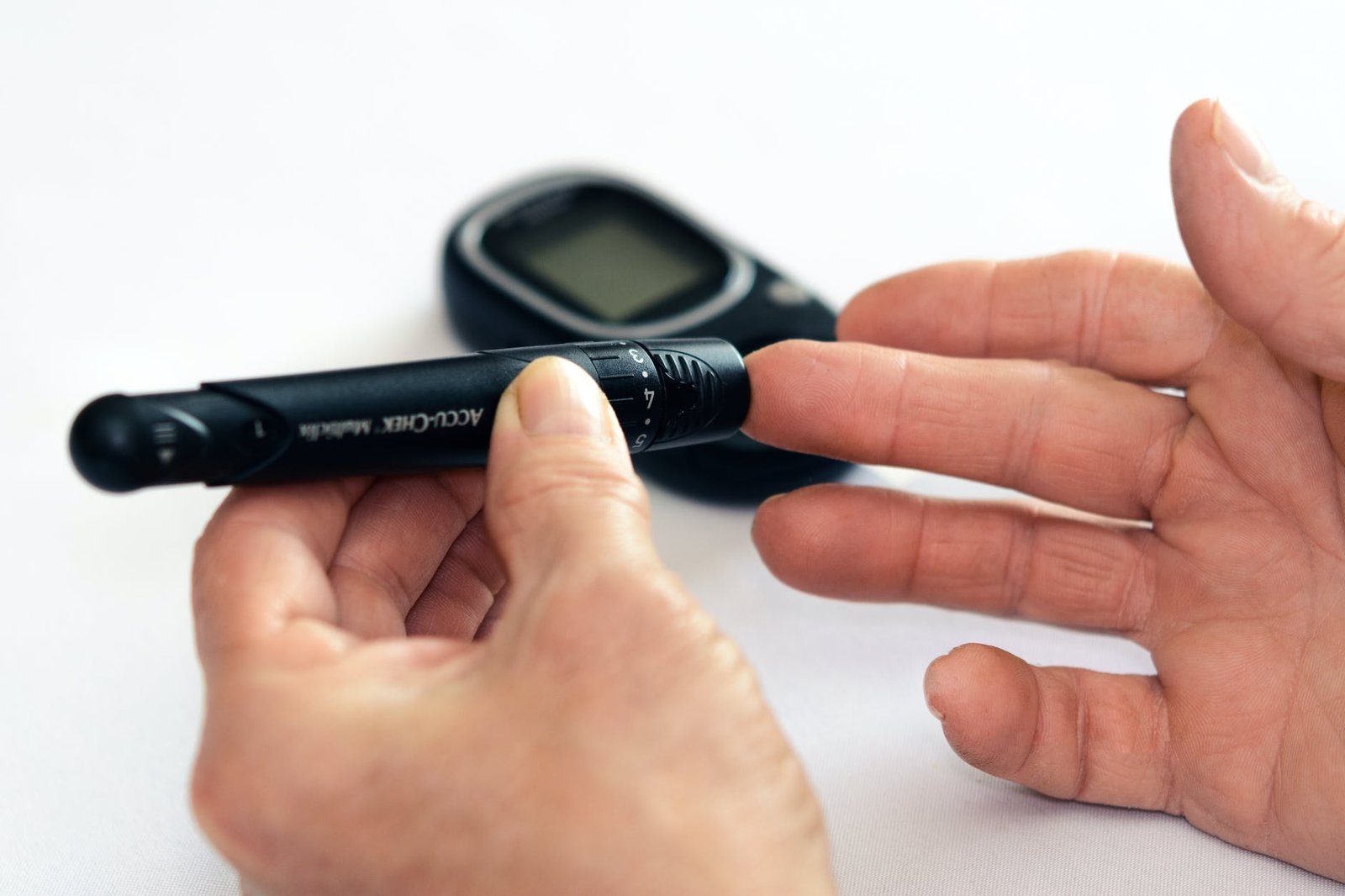Diabetes Mellitus, more commonly referred to as just diabetes, is a group of diseases that result in our blood containing more sugar (glucose) than normal. There are two types of Diabetes Mellitus, both of which are a result of problems with insulin. Insulin is a hormone that allows glucose to enter our cells amongst other things. Type 1 Diabetes is a result of having no insulin at all (insulin deficiency), whereas Type 2, the more common kind, is a result of insulin resistance. Both of these types are related to genetics, however, Type 2 is also related to obesity and a sedentary lifestyle as well. Type 2 Diabetes Mellitus also usually remains not diagnosed for many years as there is still some insulin in the body to prevent the severe effects of too much sugar in the blood, which is called hyperglycemia. However, long-term hyperglycemia has devastating effects on our blood vessels. These changes affect organs such as our eyes, kidneys, heart and even brain. In fact, Diabetes is the most common cause of kidney failure and dialysis worldwide, and in Malaysia this is no exception.
In Malaysia, the average age of someone being diagnosed with diabetes is 53 years, even though in reality the complications of diabetes would have had years to take effect by then. Because of its chronic and progressive nature it is important for diabetes to be diagnosed earlier, and that the goal of managing this disease should be in prevention, not with medication as a cure once complications are present. To help with this it is important to know the risk factors for Diabetes, so that we know who to screen for it.
Risk factors
- Obesity
- Physical inactivity (sedentary lifestyle)
- First degree relative with diabetes
- History of cardiovascular (heart) disease (CVD)
- Hypertension (BP ≥140/90 mm Hg or on therapy for hypertension)
- Women with previous gestational diabetes or delivered a baby >4kg
- High density lipoprotein (HDL) cholesterol <0.9 mmol/L or total cholesterol >5.2mmol/L
- Women with Polycystic Ovarian Syndrome (PCOS)
Who should be screened for Diabetes?
- Any individuals with symptoms of diabetes
- increased thirst
- frequent urination
- excessive hunger
- blurring of vision
- repeated infections
- Any individuals without any symptoms but who are overweight or obese (BMI ≥23kg/m2 or have a waist circumference of ≥80cm in women and ≥90cm for men) AND any risk factors as mentioned.
- Any individuals above the age of 30 without any symptoms or risk factors should be tested once yearly.
Testing for diabetes involves simple blood testing that uses fasting or post meal blood samples. In some cases both of these samples will be taken with the individual drinking a sugar solution to simulate having a meal. To test for the control of diabetes, a doctor will take a blood sample and measure an individuals HbA1c. This test measures the amount of sugar deposited in our blood cells and will reflect the level of diabetic control for the last few months. An individual with diabetes might practice frequent testing using a glucometer, that pricks the skin and measures the amount of glucose in smaller blood vessels called capillaries. The screening tests for diabetes and high blood sugar levels are widely available and moderately priced leaving Malaysians no excuse for not being screened. This November 14th is World Diabetes Day, and Malaysians should do our part to make sure we don’t add to the increasing incidence of diabetes here.




